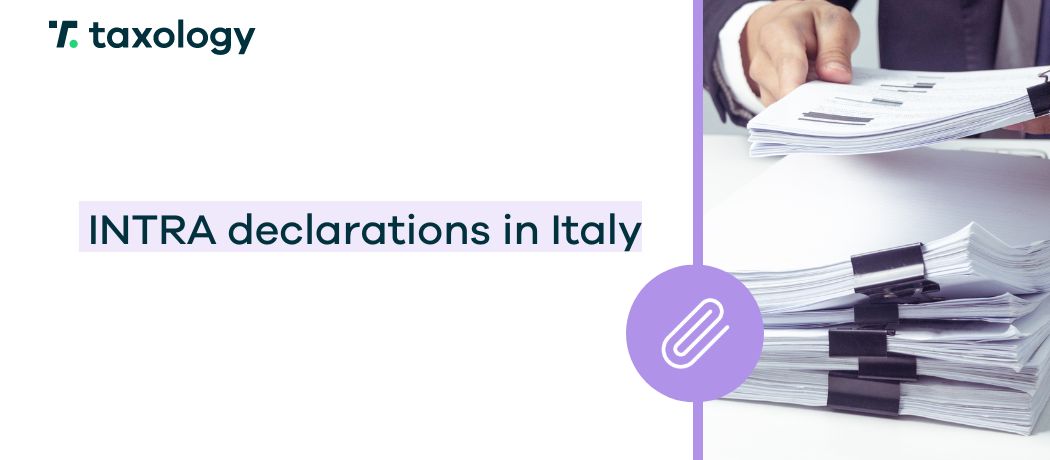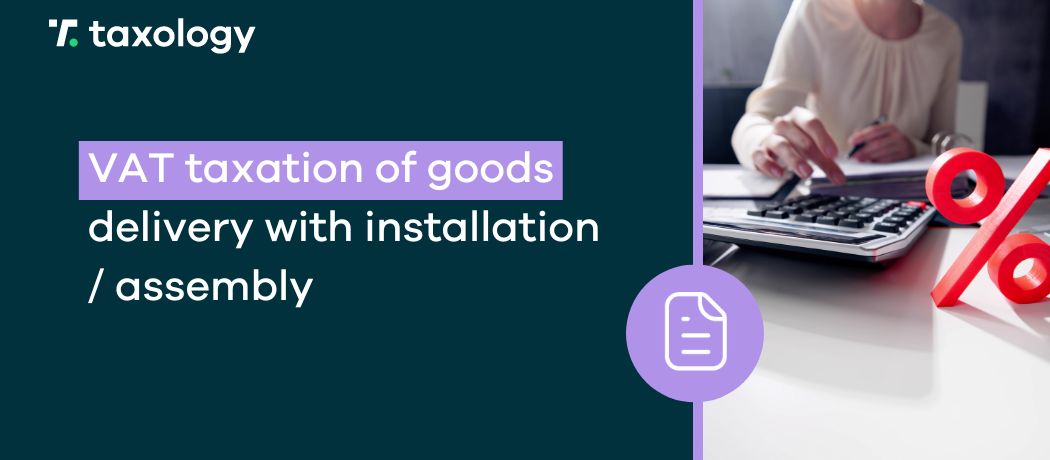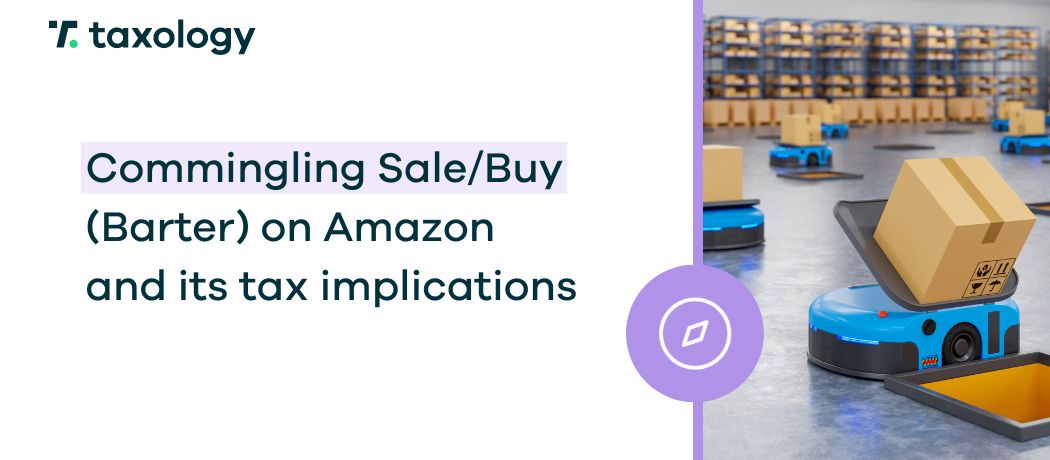Italy ranks as the fourth largest e-commerce market in Europe in terms of value. It is no surprise, then, that it attracts entrepreneurs looking to expand in this direction. However, […]
Read in: 4 minVAT guide to VAT registration in Poland
- Last update: 23.02.2024
- Published: 20.06.2023
- Read in: 6 min
How can you go about registering as a VAT payer in Poland? Although the process may appear complicated, it is an essential step for most entrepreneurs aiming to operate their businesses successfully.
VAT, also known as value-added tax, stands as a significant source of revenue for the state and serves as a critical component in business operations. Ensuring proper VAT registration is vital for the legitimacy of businesses, as non-compliance with existing legislation can lead to office inspections, severe legal consequences, including penalties and possible incarceration.
In this article, we will explore the process of VAT registration in Poland, covering topics such as the circumstances where VAT registration becomes mandatory, the steps involved in registering for VAT, available exemptions and their eligibility criteria, and the potential repercussions of failing to register for VAT.
Who is required to register for VAT in Poland?
Polish VAT registration is obligatory for individuals, corporations, unincorporated entities, and self-employed individuals conducting business activities. The latter category encompasses service providers, manufacturers, traders, farmers, and individuals involved in the extraction of natural resources.
Polish VAT legislation
Moreover, the main source of Polish VAT legislation is the Polish VAT Act called Ustawa o Podatku od Towarów i Usług (Ustawa o VAT).
Mandatory VAT registration Poland - local company
The obligation for mandatory registration for VAT arises when:
- entrepreneurs engage in the sale of goods and services listed in the VAT Act,
- the total value of their sales in the previous year exceeded 200,000 PLN.
It should be noted that the aforementioned sales value does not include the amount of value-added tax or the supply of goods and services described in Article 113(2) of the VAT Act.
Furthermore, the mentioned sales threshold of 200,000 PLN applies when registering for VAT on the first day of the calendar year. However, as time passes, this value proportionally decreases based on the number of days remaining in the year. This means that if a business starts its operations on the 15th or 45th day of the year, the threshold will be 191,780.92 PLN (350/365 x 200,000 PLN) or 175,342.46 PLN (320/365 x 200,000 PLN), respectively.
Who will not benefit from the subject-based VAT exemption?
It is important to note that the exemption threshold of PLN 200,000 does not apply universally. There are certain types of entrepreneurs registered for VAT who are not eligible for this exemption. These include suppliers of:
- Goods listed in Annex 12 of the Polish VAT Act.
- Goods subject to excise duty, excluding electricity, tobacco products, and passenger cars classified as fixed assets subject to depreciation.
- New means of transport.
- Parts for motor vehicles and motorcycles.
- Building land.
- Buildings, structures, or parts thereof, as defined in Article 43(1)(10)(a) and (b) of the VAT Act.
- Goods for which the contract is concluded remotely, without the physical presence of the parties, such as cosmetic and toilet preparations, computers, and electronic and optical products.
Furthermore, the subject-based exemption does not apply to service providers in the following areas:
- Legal services.
- Consulting services, except for agricultural consulting related to plant cultivation, animal rearing, and the development and modernization planning of agricultural holdings.
- Jewellery services.
- Debt collection services, including factoring.
Additionally, companies without a registered office in Poland are also not eligible for the VAT subject exemption.
Subjective VAT exempt Poland
Besides the exemption based on the subject of VAT, there is also a subjective exemption available in Poland. This exemption is applicable to entrepreneurs who provide the professions and services outlined in Article 43(1) of the VAT Act. These services include, among others, medical services or care for individuals with disabilities.
Voluntary registration for VAT purposes
It should be highlighted that there are instances where it is optional, yet not obligatory, to register for VAT, allowing for the VAT-exempt taxpayer status. This option is available to entrepreneurs who do not exceed the threshold defined by the VAT subject exemption, engage in activities that are exempt from VAT, and/or do not have a registered office or permanent establishment in Poland. However, they provide services within the country to individuals who are not VAT-registered, such as transportation or telecommunication services.
Revisiting VAT exemption Poland
If a VAT-registered entity previously enjoyed an exemption status, there is an opportunity to regain the exempt taxpayer status. Nonetheless, this is only possible if their sales remain below PLN 200,000 and their business activities continue to fall within the scope of VAT exemptions. Additionally, at least one calendar year must have passed since the end of the year in which they were last registered as an exempt taxpayer.
The requirement for foreign entities conducting business in Poland to register for VAT
Foreign entities are required to register for VAT in Poland in the following situations:
- Exporting goods from Poland.
- Importing goods into Poland and undergoing customs clearance on its territory.
- Engaging in the purchase and sale of goods and services within the country.
- Providing services that are subject to VAT taxation in Poland.
- Storing goods in Poland and/or operating a Call-Off Stock.
- Conducting Intra-Community Distance Selling of Goods (CSTO) when the goods are located in Poland during dispatch or transportation.
Documents required for the registration of foreign entities
Foreign entities who intend to register for VAT for Intra-community transactions (intra-Community supply of goods and intra-Community acquisition of goods) are required to submit a specific set of documents. These documents include:
- A copy of a valid identification document, such as a passport.
- An extract from the commercial register of the company’s home country.
- Articles of association outlining the company’s legal structure and operations.
- Confirmation of VAT registration in the country where the company is established.
- Proof of the company having its own bank account, as indicated in the application.
It is important to note that these documents must be translated into Polish. While opening a bank account in Poland is not mandatory, if a foreign entity chooses not to do so, they will be ineligible to apply for a VAT refund. This decision must be communicated in advance through a declaration.

Do you need help with VAT abroad?
We can help! Our VAT Compliance specialists will help you and your company with settlements, declarations and VAT registrations in EU countries and Great Britain, as well as with VAT OSS.
Schedule a consultationLimit of intra-Community sales of goods - Intra-community VAT threshold
For foreign entities that are required to register for VAT in Poland, it is important to consider the mail order limit, which is also known as the intra-Community distance sale of goods (CSTO) limit starting from 1 July 2021.
This limit pertains to the total value of intra-Community supply of goods made by a company within the European Union and is set at EUR 10,000. Once this threshold is surpassed, starting from the transaction that exceeds the limit, VAT must be settled in the buyer’s country or through the VAT One Stop Shop (VAT OSS) scheme. If the former option is chosen, VAT registration in the buyer’s country becomes necessary.
A similar rule applies to Polish entrepreneurs who sell their goods and services to customers in other EU countries. If you find yourself in this situation and require assistance with VAT, please book a free consultation where our VAT Compliance specialists can provide guidance tailored to your business needs.
Additionally, keep in mind, that since 1 July 2021 there is no longer VAT registration threshold Poland used to have before that date. The CSTO limit now includes all the sales within the EU member states.
The VAT registration process in Poland
To obtain the status of a VAT taxpayer, an entrepreneur must complete a registration declaration by submitting the VAT-R form. This process is carried out at the tax office responsible for overseeing the business, which is determined based on factors such as the type of business entity, registered or permanent business location, and the revenue earned.
Which (tax) VAT office should you choose when registering for VAT?
For sole proprietorships, the registration application should be submitted to the appropriate tax office in Poland, based on the entrepreneur’s place of residence.
In the case of legal persons or non-corporate entities, the VAT-R form should be submitted to the tax office responsible for the entity’s registered office.

If the entity does not have a registered office in Poland but has a permanent place of business there, the registration application should be submitted to the tax office responsible for that place of business.
However, if the entity lacks both a registered office and a permanent place of business in Poland, the registration application should be filed with the Second Tax Office in Warsaw’s Śródmieście district.
Additionally, the revenue of the enterprise can determine the tax office it falls under. If the net revenue exceeds EUR 3,000,000, the company will be subject to a specialised tax office with provincial jurisdiction. For revenues exceeding EUR 50,000,000, it will be the 1st Masovian Tax Office in Warsaw.
The VAT registration process Poland
To obtain the VAT exempt status or active VAT taxpayer, you need to submit the VAT-R form, and you can do so by:
- online, via Biznes.gov.pl or Podatki.gov.pl,
- in person at the tax office,
- through correspondence, by sending the required documents.
For the electronic method, the VAT-R form is included as an attachment to the application for registration or its modification in CEIDG.
Stages of VAT registration process Poland
Once the registration application is submitted to the appropriate Head of the Polish tax office, the information provided in the VAT-R form is reviewed. If everything is correct, the applicant will be registered either as an active VAT taxpayer or as an exempt VAT taxpayer.
It is important to note that VAT registration should be completed prior to engaging in any taxable activities, before losing the right to subjective or objective exemption, and before the start of the month in which the VAT taxpayer voluntarily renounces the subject-based exemption.
Confirmation and cost of VAT registration in Poland
Within the registration application, it is possible to request confirmation of VAT registration. It is important to be aware that while there is no fee for registering, there is a fee of PLN 170 for obtaining the mentioned confirmation.
The payment should be made to the account of the city or municipal office responsible for the location of the Polish tax office where the VAT taxpayer has submitted the registration application.
Polish VAT number format
In Poland, the VAT number is called Numer Identyfikacji Podatkowej (NIP), that translater to the Tax Identification Number. It consists of 10 digits for local entrepreneurs conducting business in Poland. However, the Polish VAT number given to entrepreneurs from abroad or those who conduct intra-community transactions, NIP is preceded with the “PL” country code.
VAT registration in Poland and the power of attorney
In Poland, it is possible to outsource the process of VAT registration to an attorney. However, it should be noted that when appointing an attorney, you can grant either:
- a special power of attorney, which requires the submission of the PPS-1 form and incurs a fee of PLN 17.
- a general power of attorney, which can be obtained by submitting the PPO-1 form, and it is provided free of charge.
Fiscal agent and tax agent Poland
Let us also clarify the meaning of 2 essential terms not only when it comes to the Polish VAT registration, but VAT registrations in the EU in general, and the terms are tax agent and fiscal agent.
Entrepreneurs from outside the EU, who want acquire a Polish VAT number, or any other European VAT identification number, have to appoint a tax representative, which is obligatory. However, EU residents who need to conduct a VAT registration, have an option to use a Polish fiscal representative service, who would represent them in VAT-related purposes in other countries.
VAT taxpayer, VAT payment and VAT reporting obligation
After fulfilling the requirement of VAT registration, active taxpayers, whether mandatory or voluntary, are required to maintain electronic VAT records. These records include sales data, which enables the calculation of output VAT, and purchase records, which facilitate the calculation of input VAT.
Furthermore, the information gathered in these records is essential for accurately preparing the tax return, which needs to be submitted using the Single Control File JPK_VAT format.
Submitting VAT returns on a monthly or quarterly basis is another obligation for active VAT taxpayers. Additionally, any changes that occur must be reported to the tax office within seven days by updating the VAT-R form.
VAT returns Poland – Deadline for VAT returns
One must also remember about VAT returns deadlines. Submitting VAT returns on a monthly or a quarterly basis, one has time till the 25th day of the month following the taxation period.
Lack of registration for VAT purposes
Entrepreneurs may find themselves in situations where they haven’t officially registered as an active VAT taxpayer, despite the obligation to do so, yet fulfil their tax responsibilities by submitting VAT returns and making VAT payments. In these cases, it is important for them to promptly register for VAT. In such situations, the tax office generally permits retroactive registration.
On the other hand, the alternative choice is to not register for VAT, which means avoiding the obligation to file returns and pay VAT. However, this kind of behaviour is considered a failure to disclose the taxable base and is classified as a tax offence, which may lead to VAT penalties for non-compliance, including possible incarceration.
VAT guide to VAT registration in Poland - Summary
Every entrepreneur providing services subject to VAT must go through the process of VAT registration. In order to register, they need to submit a VAT-R form, addressed to the relevant tax office with jurisdiction over the business. This can be done either in person at the tax office or by submitting the application online or via mail.
It is important to mention that during the registration process, the entrepreneur can acquire either the status of an active taxpayer or a VAT exempt taxpayer. A VAT exempt taxpayer, as the name implies, benefits from certain exemptions, both subject-based and subjective. Conversely, an active VAT taxpayer is required to fulfil all tax obligations outlined in the VAT Act, including submitting tax returns and making the necessary payments.
Failure to be aware of or comply with the regulations can lead to penalties or even incarceration. Therefore, it is advisable to become acquainted with the VAT rules that are applicable in the country of business operations, in this case, Poland. For more information about VAT in Poland, ex. VAT rates Poland, see our article – VAT Poland 2024.
VAT Compliance Poland - VAT registration services Poland and more!
If you’re a business owner considering expanding into international markets, it’s highly likely that you’ll need to register for VAT in those countries, such as EU VAT or OSS VAT. Rest assured, we’re here to assist you every step of the way. Simply schedule a free consultation and discover how our team of VAT Compliance specialists can provide valuable support for you and your business. Let us help you navigate the complexities and ensure a smooth VAT registration process or check out the rest of our VAT Compliance services!




